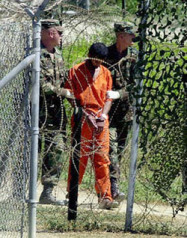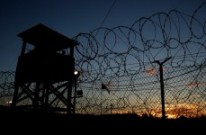 University of Florida professor Sami al-Arian goes on trial today in what is being billed as the most important terrorism case in the United States since September 11.
University of Florida professor Sami al-Arian goes on trial today in what is being billed as the most important terrorism case in the United States since September 11.
Prosecutors claim that Dr Arian, and three other Arab-Americans who will be in the dock with him, commanded an Islamic Jihad cell that flourished in Tampa and infiltrated the University of South Florida. The group is said to have helped finance a series of attacks in the West Bank, Gaza Strip and Israel in which more than 100 people died, including at least one American.
However, supporters and lawyers for the Kuwait-born professor claim that it is not a straightforward case of terrorist funding. Instead, they say it raises serious issues about anti-Muslim bias in the US post-September 11, freedom of speech and what they see as a blatant attempt by Israel to silence a powerful Palestinian voice in America.

 Richard Bernstein examines the case of Guantánamo detainee Murat Kurnaz, a 19-year-old Muslim from Germany, who was arrested in Pakistan in 2001 and handed over to US forces to face imprisonment and torture.
Richard Bernstein examines the case of Guantánamo detainee Murat Kurnaz, a 19-year-old Muslim from Germany, who was arrested in Pakistan in 2001 and handed over to US forces to face imprisonment and torture. The speech by Amnesty general secretary Irene Khan describing Guantánamo as the “gulag of our times” (see
The speech by Amnesty general secretary Irene Khan describing Guantánamo as the “gulag of our times” (see  “Should the United States apologize? If there were mishandlings of the Koran, we should say so and express regret. And that should be in the context of our remarkably humane and tolerant treatment of the Guantanamo prisoners, and in the context of a global war on terrorism (for example, the campaign in Afghanistan) conducted with a discrimination and a concern for civilian safety rarely seen in the annals of warfare. Then we should get over it, stop whimpering and start defending ourselves.”
“Should the United States apologize? If there were mishandlings of the Koran, we should say so and express regret. And that should be in the context of our remarkably humane and tolerant treatment of the Guantanamo prisoners, and in the context of a global war on terrorism (for example, the campaign in Afghanistan) conducted with a discrimination and a concern for civilian safety rarely seen in the annals of warfare. Then we should get over it, stop whimpering and start defending ourselves.” “The detention facilities at Guantánamo, including Camp X-ray and Camp Delta, were constructed specifically to house individuals apprehended in the war on terror. Enemy combatants held at the camp must be foreign nationals who have either received training from al Qaeda, or who have been in command of 300 or more military personnel. They are among the world’s most brutal and committed Islamist enemies of the United States. By incarcerating and interrogating them, the U.S. hopes to gain crucial intelligence that could thwart future terrorist attacks against America and to keep them from returning to the terror war against the United States.”
“The detention facilities at Guantánamo, including Camp X-ray and Camp Delta, were constructed specifically to house individuals apprehended in the war on terror. Enemy combatants held at the camp must be foreign nationals who have either received training from al Qaeda, or who have been in command of 300 or more military personnel. They are among the world’s most brutal and committed Islamist enemies of the United States. By incarcerating and interrogating them, the U.S. hopes to gain crucial intelligence that could thwart future terrorist attacks against America and to keep them from returning to the terror war against the United States.”